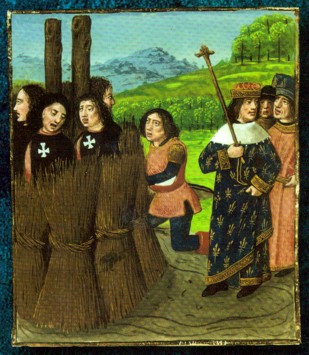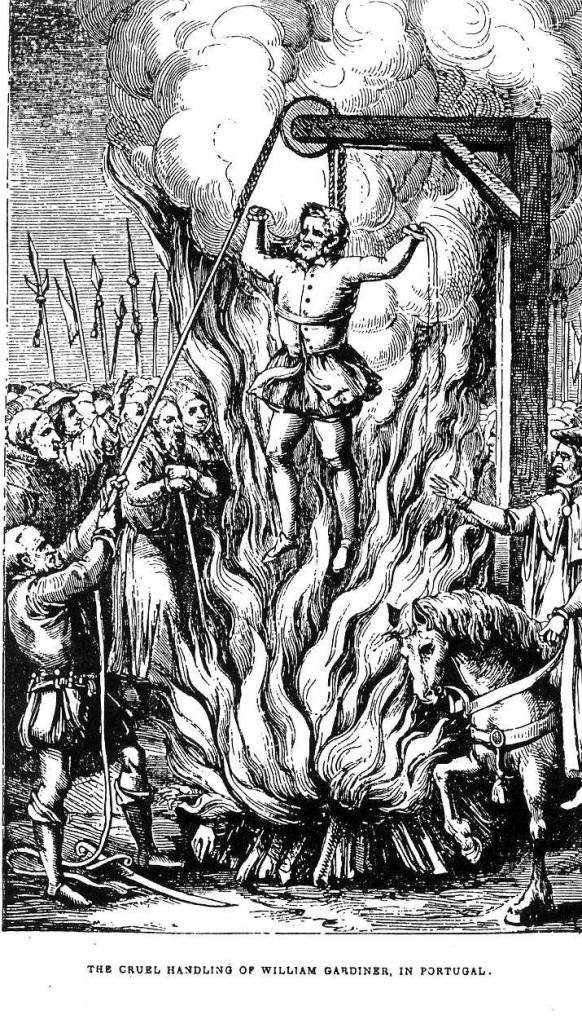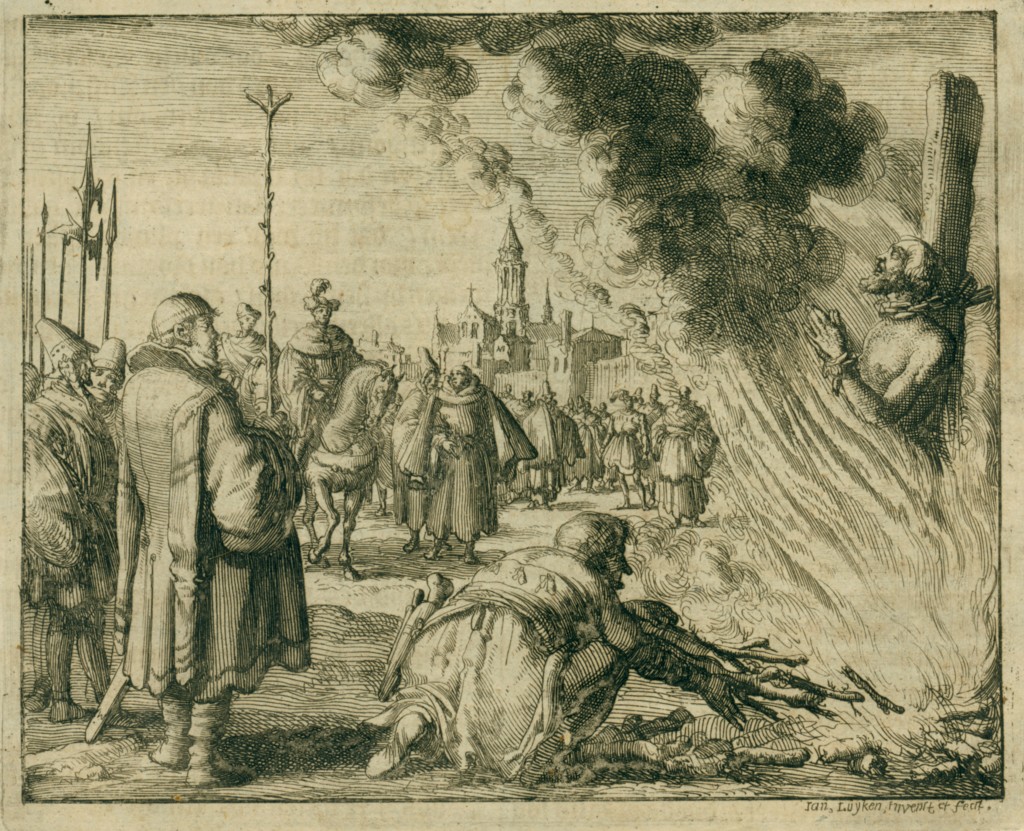The gnostics were a filthy people. Truly reprehensible.
"The key doctrine of this sect was belief in the possibility of "transfiguration into God." Since the soul of each man consists of divine substance, any man in principle can achieve a state of "Godliness." To attain this end he must pass through many years of novitiate in the sect, renounce all property, family, will, and live by begging. Only then does he attain the state of Godliness and become one of the "Free Spirits." Numerous descriptions of the sect's world view have been preserved. There are accounts by Free Spirits or by Free Spirits who later repented, as well as those in the archives of the Inquisition. (See 14: p. 56; 15: p. 136; 16: pp. 110,119; 17: p. 160; etc.) All sources agree on one point--that Godliness is not a temporary state but a continuous one. Johann Hartmann from a town near Erfurt characterized this ecstasy as "a complete disappearance of the painful sting of conscience." (15: p. 136) In other words, the Free Spirit was liberated from all moral constraints. He was higher than Christ, who was a mortal man who attained Godliness only on the cross. The Free Spirit was the complete equal of God, "without distinctions." Hence his will is the will of God, and to him the notion of sin becomes meaningless.
This sinlessness and freedom from moral restrictions was characterized in a number of ways. The Free Spirit is the king and sovereign of all that is. Everything belongs to him, and he may dispose of it at will. And whoever interferes with this may be killed by him, even if it is the emperor himself. Nothing performed by the flesh of such a man can either decrease or increase his divinity. Therefore, he may give it complete freedom. "Let the whole state perish rather than he abstain from the demands of his nature," says Hartmann. (15: p. 141) Intimacy with any woman, even with a sister or his mother, cannot stain him and will only increase her holiness. Numerous sources dating from the fourteenth and fifteenth centuries report on rituals of the sects, which included indiscriminate sexual union. In Italy, such "masses" were called
barilotto. In Germany, there were reports of special sanctuaries called "paradises" for this purpose.
The contemporary scholar H. Grundmann (18) points out in this regard that in the late Middle Ages there was no need to belong to a sect in order to adhere to any sort of free views in sexual matters. The basis of the "orgiastic mass" was strictly ideological. The Free Spirit, who had attained "Godliness," broke completely with his former life. What had been blasphemy for him in the past (and remained so for "rude" folk) now became a sign of the end of one historical epoch and the beginning of another--the new Eon. In this way he was able to comprehend and to express his new birth and the break with the old Eon.
It is clear that the Free Spirits had no use for the path of salvation proposed by the Catholic Church--penance, confession, absolution of sins, communion. Moreover, they saw the Church as a hostile organization, since it had usurped the right to examine and to decide, which they considered solely their own prerogative. A bitterly anti-ecclesiastical sentiment pervades the views of the Free Spirits and finds expression in their frequent worship of Lucifer.
In the center of the sect's ideology stood not God but man made divine, freed from the notion of his own sinfulness and made the center of the universe. As a result, Adam played a central role in their teaching, not Adam the sinner depicted in the Old Testament, but Adam the perfect man. Many of the Free Spirits referred to themselves as the "New Adams," and Konrad Kanler even called himself Antichrist ("but not in the bad sense"). It seems possible to argue that here, within the confines of this relatively small sect, we encounter the first prototype of the humanist ideology which would later attain worldwide significance."
The Socialist Phenomenon by Igor Shafarevich



